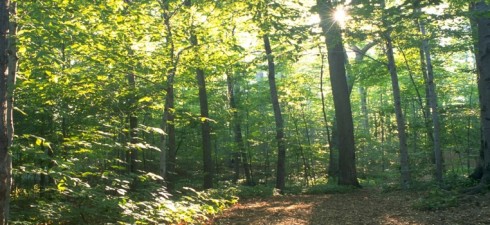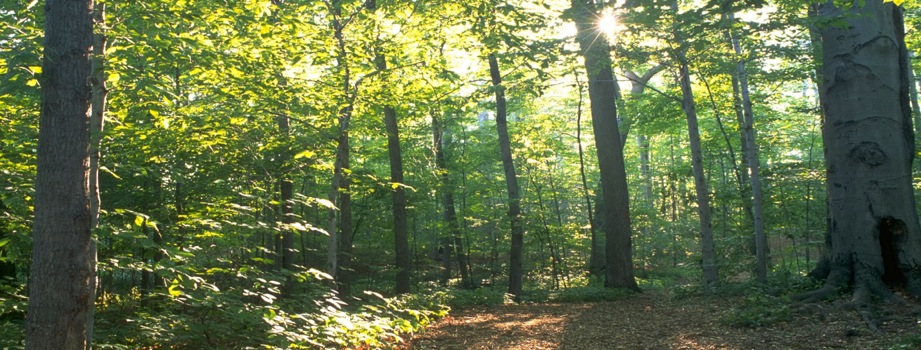The Epistle of James, held by many Latter-day Saints as written by the brother of Jesus and directed to the twelve tribes, including us in our day, is well known for a number of remarkable passages. James gives us the verse about “pure religion,” a verse which charges all saints to care for the widows and the fatherless. James also counsels on the power of the tongue, a power which must be bridled, lest we damage our own souls and wound those around us. But none of the verses are more beloved to Mormons than these found in the first chapter, particularly verse five, the first listed below:
If any of you lack wisdom, let him ask of God, that giveth to all men liberally, and upbraideth not; and it shall be given him.
But let him ask in faith, nothing wavering. For he that wavereth is like a wave of the sea driven with the wind and tossed.
For let not that man think that he shall receive any thing of the Lord.
In my scripture study this week, I pondered a fair bit on the young Joseph Smith’s reading of this epistle. I could imagine the farm boy taking a quiet moment with his Bible, easing from the Pauline epistles into the epistles of James, Peter and Jude that follow Paul’s sizable turf. Such a seeking young man, with some of the seeds of confidence that would bear fruit in his adulthood already planted, must have marveled at the open invitation offered by James. Such access to God! This is a channel of conversation unhampered by priests, ministers, clergy, middle men. This is a God, this God of James, who loves his children, who welcomes their questions, who does not rebuke them, but asks only for faith and open ears. And Joseph did pray in faith. He may have paid special attention to James’ note that a wavering petitioner would not be answered, but would be tossed.
This is not to say that Joseph was not tossed. But for him, this petition offered in faith did, in fact, unlock Heaven inside his mind and heart. His soul communed with this God of James. Joseph’s petition made the grove sacred. He also laid claim to a most incredible answer, an answer that nearly always bowls me over with its size and scope and spectacular singularity.
What was seen, what was heard, what was wrestled, even what was written would, of course, be debated and dissected and adjusted. We continue to retell the story of Joseph’s petition, both showcasing and silencing what happened. Nonetheless, the young boy believed himself to be upbraidethed not.
Bruce R. McConkie later wrote of this epistle, “It might well be said that the crowning act of the ministry of James was not his martyrdom for the testimony of Jesus, but his recitation, as guided by the Holy Ghost, of these simple words which led to the opening of the heavens in modern times. And it might well be added that every investigator of revealed truth stands, at some time in the course of his search, in the place where Joseph Smith stood. He must turn to the Almighty and gain wisdom from God by revelation.”
I love the image of every investigator of truth (“me, me, me, pick me!”) standing in the place where Joseph stood. For me, this means standing in the Epistle of James, reading this invitation for myself, contemplating a God who belongs not only in the Holy of Holies, not only to the Levites, but in my heart. An almighty such as this is surely unbound by such denominations, sects and tribes as we humans are so endlessly capable of creating (and dividing). An almighty such as this would certainly be the power of the universe, and in whatever manner he/it/they or most definitely she communicates, whether that be via miraculous appearances, scientific discoveries, Hubble photographs, meditative sensations or the sound of Yosemite Falls, all ‘revelations’ in my book, the responsibility to seek falls to us. And the answers we find belong first and foremost to us. They cannot be co-opted by the self-same priests, clergy, ministers that James excludes.
This holy obligation to ask is something that deeply resonates for me in the larger story of the restoration. To be Mormon, then, is to ask, and to ask with ballsy confidence and joyous faith that the universe will respond. And such a god surely has much to share, so many answers, we haven’t even yet come to the end of the questions.
;


http://flippinutahmormons.blogspot.com/2011/09/on-doubt-skepticism-and-faith.html
I love the last two paragraphs especially, the openness, the seeking attitude that this essay embraces. I especially love the “ballsy confidence” and will remember that next time I’m on my knees (or not) in prayer.
To me this open-endedness is what defines me as a mormon. Not the word of wisdom, priesthood authority, or anything else. Alas I believe this is something we have lost in the modern church. Any 14 year-old boy who claimed to have an encounter like this with God would be sent to his priesthood leaders for re-education and correction. Those experiences are reserved for church leaders, which is exactly the environment that sent Joseph to the grove in the first place. We have become the church he was trying to escape from.